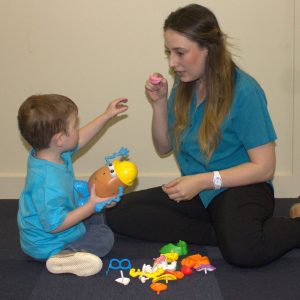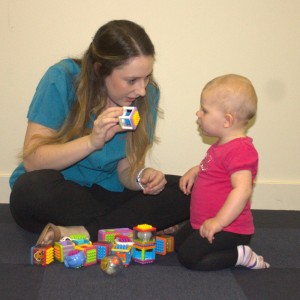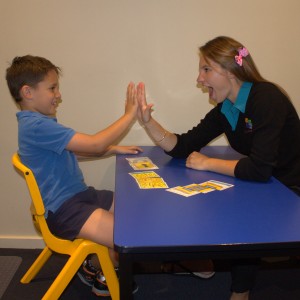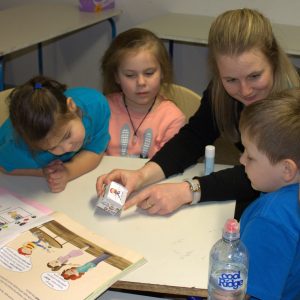 Do you know a child who needs support for speech skills? Children with speech delays and disorders can struggle with social interactions and sometimes behaviour due to the frustration and isolation of not being able to communicate. Longer term speech delays can impact on learning, particularly in the areas of reading, spelling and writing.
Do you know a child who needs support for speech skills? Children with speech delays and disorders can struggle with social interactions and sometimes behaviour due to the frustration and isolation of not being able to communicate. Longer term speech delays can impact on learning, particularly in the areas of reading, spelling and writing.
Talking Matters has vacancies for speech assessments in their offices in Elizabeth Downs and Tanunda, with no need to wait.
If your child is having speech therapy or just want your normally developing child to speak more clearly, here are some simple things that can make a real difference to their speech development.
1. Talk together every day. The more speech your child hears the better their speech will be. Speak clearly and use the correct words for things. Try to find some uninterrupted time and just talk together.
2. Look after your child’s hearing. Have a hearing test with a qualified audiologist if you are concerned about hearing or speech and always follow up on any ear infections.
 3. Get face to face with your child. Ensure your child can see your face when you are talking to them. When you model tricky words or sounds make sure they can see as well as hear you.
3. Get face to face with your child. Ensure your child can see your face when you are talking to them. When you model tricky words or sounds make sure they can see as well as hear you.
4. Play games with sounds. During play, encourage sound play using speech sounds. Try car games: car - putt, putt, down a ramp – weeeeeeeee, horn honking - beep, beep; or farm animals: baa, moo, nay, woof.
5. Be realistic. Be aware of the ages children typically develop sounds and what sounds to expect from your child. Typical ages for sounds to develop are: 3 years – m, n, h, p, w, d, g, y, k, f, b, t; 4 years – sh, ch, j, l, s; 5 years – r, v; 6 years – z; 8 years – th
6. Listen to what your child says not just how they say it. The main reason we speak is to communicate an idea. Make sure you listen to what your child is saying and respond to that. A child who feels listened to and heard will communicate more.
7. Be positive. Use lots of encouragement and tell your child what they have done well. Use specific words. “I like the way you used your words to ask for that”. “I like the way you tried that new tricky word”. “You tried to fix that /s/ sound, well done”
 8. Recast your child’s errors. If your child makes a mistake when talking, repeat what they say, fixing the mistake to show them the right way. Use a positive tone and repeat it a few times but keep it natural. E.g. Child “I see a shish”. Adult “Yes a fish, I see the fish too, a pretty fish”.
8. Recast your child’s errors. If your child makes a mistake when talking, repeat what they say, fixing the mistake to show them the right way. Use a positive tone and repeat it a few times but keep it natural. E.g. Child “I see a shish”. Adult “Yes a fish, I see the fish too, a pretty fish”.
9. Model new words with tricky sounds. Look at books and play games that allow you to teach your child new words with sounds your child finds tricky.
10. Practice tricky words. If there are important words your child has difficulty with, such as names of family members or other important people, or things that they like to talk about often, give these some extra practice. Make a list of three to five only and put them on the fridge. Add a picture for each if your child can’t read. Say each word clearly for your child and ask them to try and copy you. Try each word a couple of times per day and praise your child for trying and for getting clearer.
Talking Matters provides speech pathology, occupational therapy and psychology services for children. We have a range of service options including individual therapy in our bright, child friendly clinics in Elizabeth Downs and Tanunda as well as many school based services. We also do group programs and home or child care visits by negotiation. To find out more browse our website. To find more information and resources for supporting children with special needs follow us on Facebook, Twitter and Pinterest.
 We have a range of group programs available including a new group group coming up in April focusing on language and literacy skills. Find out more here.
We have a range of group programs available including a new group group coming up in April focusing on language and literacy skills. Find out more here.
We also have a range of workshops planned for 2017 to help teachers, SSOs and carers as well as parents support children with communication and other needs. Check out what is on offer here.
Whether you live locally in the northern suburbs of Adelaide or in the Barossa and can come in and see us, or are further afield and want to make use of our extensive range of free resources, we look forward to sharing our passion for helping kids learn and develop.
Jo Brenecki
Related Blog Posts
If you liked this post you may also like:
Why books for christmas
Using PLAY DOUGH To Grow
More than "just speech"!
Why an OT assessment?



